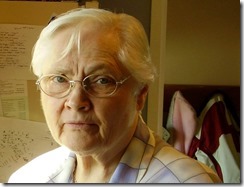I am a newly re-minted librarian this past while. I’m enjoying a return to the librarianship field.
In 1986 I graduated with a Master of Library Science. At that time the discussion was about whether the title should include the word “Information”. Those thinking ahead were prophetic. In our current world we are about the task of being literate about information. The library was originally the warehouse of “books”, then also included other media. In deference to the increasing amount of books, reference librarians helped to point out where in the warehouse a book could be found. The art of reference librarianship was to be able to point out credible and useful sources for a searcher.
As the world moved into a digital age the proliferation of published (public) works became overwhelming. The masters of information began a tedious task of helping people to know which information to choose. The titles of misinformation, disinformation and fake news arose.
But one of the tenets of librarianship was under attack. The library was to provide access to the world of information. This has largely been taken over, in a digital age, by information/archival servers such as Google, Facebook, Twitter and a host of others. As with the music industry a half century ago, the book world had to adjust.
The librarian elite responded with “information literacy”. The cry discerned in the listening was – “tell me what to read/see/hear”. As a start, the searcher was to discern their subject/desire of information. Clarify this and then search out information sources effectively and efficiently. The information must be evaluated critically before incorporating this information into his or her knowledge base and value system. A final caveat is that, in the information search, there are economic, legal and social issues that surround the use of information. Thus the searcher must use information ethically and legally. [This is a paraphrase of standards on information literacy competency as put forth by the Association of College and Research Libraries]
Which brings us to the statement that information literacy is censorship. In the broadest sense of the word. Don’t use information to oppress the poor, don’t use information to find loopholes, don’t use information to undermine a righteous society. Step with me one step further. If we know there are lies out there (and many euphemisms to describe them), information literacy requires a truth base to decide what the lies are. Plainly put, a truth base then censors un-truth.
Information literacy is censorship. And that’s OK.

